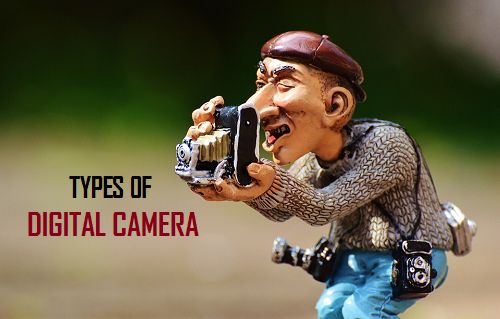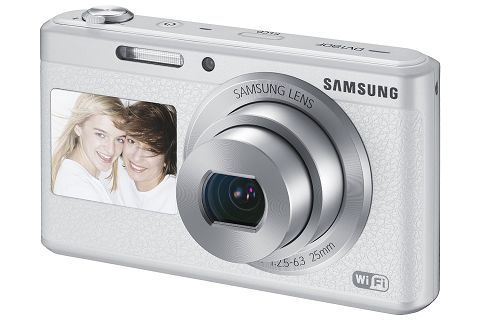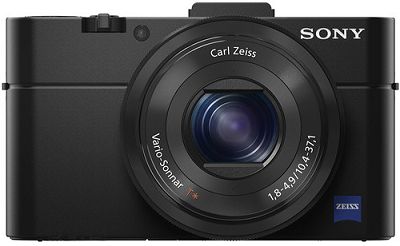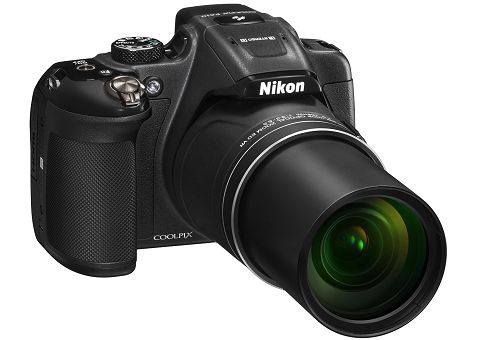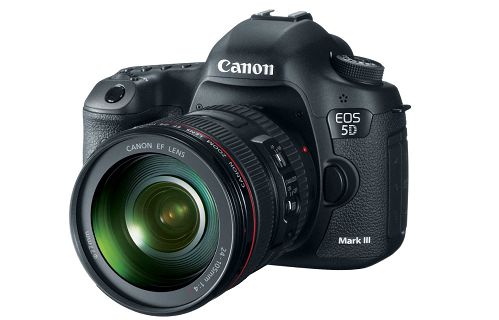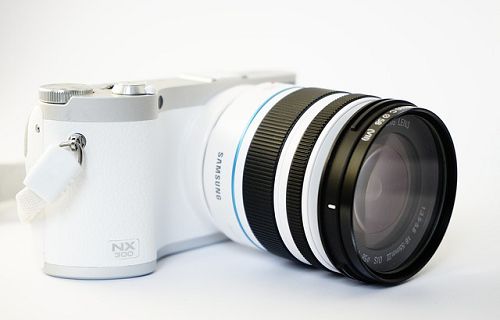Types of Digital Cameras in the Market
When it comes to choosing the right digital camera, you need to be well aware of the various types of digital cameras available on the market and the advantages and disadvantages of each of these camera types. Currently, digital cameras available in the market can be classified into the following 5 types. Later on we will be talking a look at each of these types and looking at their advantages and disadvantages. Take a look at each of the digital camera types as described below, you should be able to determine which is the best type of camera for your own unique requirements.
1. Compact Digital Cameras
A Compact Digital Camera is also referred to as a Point and Shoot digital camera, as it allows just about anyone to point the camera at a subject and shoot pictures, without having to worrying about any adjustments and controls as available in advanced cameras.
Due to their ease of use and price, Compact Digital Cameras are the most common, the most popular and the highest selling cameras in the market.
Advantages of Compact Digital Cameras
Small in size – You can just slip them into your pocket or purse Light and slim – This makes them very portable devices Affordable – Compact Digital Cameras are the cheapest in digital cameras Operation – These cameras are very easy to use – Just point your camera to a subject and shoot. The Auto mode in these Cameras takes care of all the settings required to match the subject that you are trying to capture. Image quality– Good enough for normal use.
Limitations of Compact Digital Cameras
While Compact Digital Cameras are easy to use and cost less, they have their own limitations.
Image Quality – In order to be affordable, Compact Digital Cameras are fitted with smaller and cheaper image sensors. Hence, these cameras cannot match the image quality produced by DSLR Cameras fitted with large image sensors. Speed – Point and shoot cameras generally suffer from ‘Shutter lag’. They are slow to start up and take time to focus on a subject. Lenses and Attachments – Point & shoot cameras come fitted with a single lens and cannot match the versatility of DSLR cameras which can be fitted with various types of lenses and attachments to match different shooting conditions. Lighting Conditions – Point-and-shoot cameras are not designed for night photography or shooting in poor lighting conditions Action Photography – Point and shoots are not designed for sports and action photography.
2. Advanced Point-and-Shoot Cameras
These are also point and shoot cameras, offering a good range of manual controls and better performance compared to regular point and shoot cameras.
With improvements in technology, advanced point and shoot cameras are getting so good that you can get incredible shots using these cameras, once you get used to them.
3. Mega-zoom Cameras
These are fixed lens cameras that come with a large optical zoom capacity – up to 18x in pocket mega zooms and as much as 40x and more in large size mega zoom cameras.
Advantages of Mega Zoom Cameras
Mega zooms offer DSLR like manual controls They come with high end image stabilization technology that helps in shooting full-zoom shots Impressive wide angle and Tele-photo reach Versatile enough to shoot scenery, sporting events, wildlife, faraway shots, and also portraits
Limitations of Mega Zoom Cameras
While Mega zooms have impressive reach and DSLR like manual controls, they also have certain limitations and may not be suitable for all users.
Bulky: Mega Zoom cameras can be bulky Fixed Lens: Unlike DSLR’s, Mega Zoom cameras come with a fixed lens. This means you won’t be able to switch lenses to suite various shooting conditions.
4. Digital SLR Cameras
Digital SLR camera popularly known as a DSLR camera is used by professional photographers to shoot high quality pictures. In case you did not know, the abbreviation DSLR stands for Digital Single Lens Reflex. The term ‘reflex’ comes from the use of automatic reflex mirrors used in these cameras.
Unlike other digital cameras, a DSLR camera uses a Reflex Mirror System to see the subjects being captured by the camera. To make this more clear, what you see on the LCD screen of a point and shoot camera is not exactly what the lens of your camera is actually looking at and preparing to capture on its imaging system. The Reflex Mirror System in a DSLR camera allows a photographer to see exactly what the lens of the camera is looking at. This is made possible by reflecting light from the camera lens into the viewfinder of the camera via a system of mirrors that is fitted into these cameras. DSLR cameras are widely used and preferred by professional photographers due to the following reasons.
Large Image Sensors – DSLRs have large image sensors capable of producing high-quality photos Lenses and Attachments – These cameras Can be fitted with various types of lenses, filters and lights to practically suit almost all shooting conditions. Speed – DSLR’s are known for Fast start up, good shutter speeds and the ability to focus on a subject in an instant. Manual Controls – DSLR cameras have rich manual control features, these are built in such a way that a photographer is able to use them naturally as he is shooting. You See what the camera is seeing – As mentioned above, the reflex mirror system in a DSLR allows the photographer to see exactly what is being captured by the camera. Resale Value – DSLR’s are known to have a better resale value compared to point & shoot cameras. Build Quality – Professional DSLR Cameras are made of abuse resistant alloy-metals and are made to last for a long time.
Limitations of Digital SLR Cameras
Size and Weight – DSLRs are less handy and portable due to their large size and weight. In addition you may have to carry various lenses and attachments. Difficult to use – Extensive manual controls in a DSLR can be overwhelming for first time users Maintenance – DSLRs are susceptible to letting dust onto the image sensor while changing lenses. This can be minimized by going for a DSLR with self cleaning sensors. Expensive Lenses – Good quality lenses can be expensive in case you want to add more lenses Price – DSLR Cameras are generally more expensive than point and shoot digital cameras. However, the prices are coming down drastically.
5. Compact System Cameras
Compact System Cameras also known as hybrid or Mirrorless DSLR’s are a new breed of digital cameras that are capable of producing image quality that is equivalent to those produced by DSLR cameras. These cameras are much smaller and lighter compared to DSLR’s due to elimination of SLR mirror box that contributes to the weight and bulk of traditional DSLR cameras. This means that these cameras lack optical viewfinder as found in DSLR’s and make use of electronic viewfinders or LCD screens.
Due to the growing popularity of Compact System Cameras, manufacturers are coming up with various lens options for these cameras. In order to match the weight of compact system cameras, the lenses are also being manufactured in light weight models, leading to overall portability of these cameras. Disadvantages: Being still new to the market Compact System Cameras do not have the wide range of lenses, attachments and accessories as available for a DSLR camera. Also, a compact camera lacks the optical viewfinder and ultra fast focusing speed of a DSLR camera. Advantages: Compact System Cameras offer DSLR like controls, interchangeable lenses and high-resolution sensors in a light body. Due to their light weight and size, Compact System Cameras are ideal for travel, street photography and journalists covering busy and crowded events. You can pack a compact with a couple of lenses in a small bag and be ready in a flash for taking high quality photographs.
